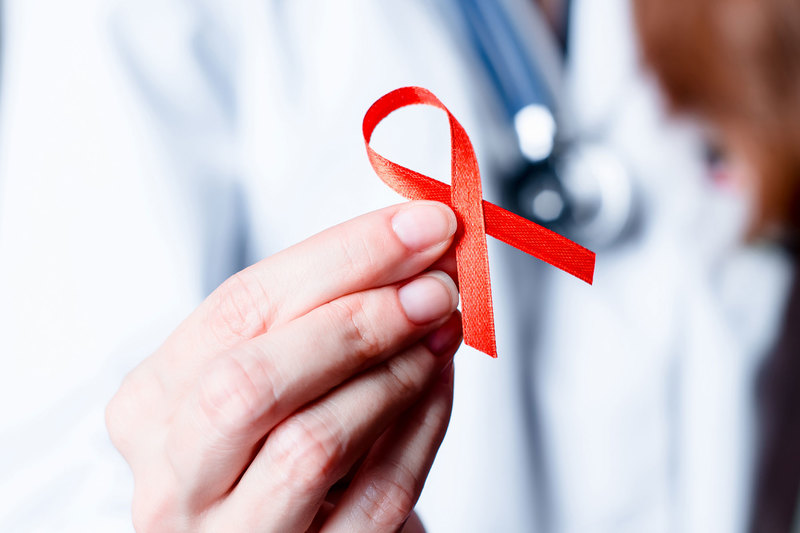Desmond Tutu HIV Foundation name change
08 July 2020 | Story Supplied. Photo Adobe Stock. Read time 2 min.
The Desmond Tutu HIV Foundation based at the University of Cape Town (UCT) has changed its name to the Desmond Tutu Health Foundation (DTHF).
This move represents the widening scope of the organisation’s work in public health research and community-driven health responses, and acknowledges its expanding expertise that, directly or indirectly, contribute to its fight against HIV.
The Desmond Tutu HIV Foundation has for the past two decades focused on improving upon the best practices to prevent, treat and ultimately control diseases such as tuberculosis, HIV, sexually transmitted infections and other related diseases, while contributing to local and national health policy.
The original HIV Research Unit was the first public clinic in South Africa to offer antiretroviral therapy to those living with HIV.
“There was a time when we needed to have an intense focus on HIV, but that has changed.”
“There was a time when we needed to have an intense focus on HIV, but that has changed over the years. The 2018 [International AIDS Society]–Lancet Commission Report speaks to a change in the HIV field, a need to look to the long-term sustainability of our HIV response,” said Professor Linda-Gail Bekker, the DTHF’s chief operating officer.
This need has been further highlighted during the coronavirus pandemic as the foundation adjusts its research sites to incorporate COVID-19 research.
Expansion
“Huge progress has been made – we now have successful treatment and options for [HIV] prevention. But we still have a very long road ahead of us. We need sustainable long-term strategies that find common ground with global health more broadly,” Bekker added.
“This embraces HIV and other communicable diseases, as well as sexual and reproductive health and improving health outcomes for key populations, such as adolescents and young women and girls.”
The organisation will continue to work under the recognisable and trusted DTHF rainbow and name of its patron, Archbishop Emeritus Desmond Tutu, who serves as a constant reminder that the work is in the service of its beneficiaries.
 This work is licensed under a Creative Commons Attribution-NoDerivatives 4.0 International License.
This work is licensed under a Creative Commons Attribution-NoDerivatives 4.0 International License.
Please view the republishing articles page for more information.
UCT’s response to COVID-19
COVID-19 is a global pandemic that caused President Cyril Ramaphosa to declare a national disaster in South Africa on 15 March 2020 and to implement a national lockdown from 26 March 2020. UCT is taking the threat of infection in our university community extremely seriously, and this page will be updated with the latest COVID-19 information. Please note that the information on this page is subject to change depending on current lockdown regulations.
Minister of Health, Dr Joe Phaahla, has in June 2022 repealed some of South Africa’s remaining COVID-19 regulations: namely, sections 16A, 16B and 16C of the Regulations Relating to the Surveillance and the Control of Notifiable Medical Conditions under the National Health Act. We are now no longer required to wear masks or limit gatherings. Venue restrictions and checks for travellers coming into South Africa have now also been removed.
Read the latest document available on the UCT policies web page.
Campus communications
2022
UCT Community of Hope Vaccination Centre
On Wednesday, 20 July, staff from the University of Cape Town’s (UCT) Faculty of Health Sciences came together with representatives from the Western Cape Government at the UCT Community of Hope Vaccination Centre at Forest Hill Residence to acknowledge the centre’s significance in the fight against COVID-19 and to thank its staff for their contributions. The centre opened on 1 September 2021 with the aim of providing quality vaccination services to UCT staff, students and the nearby communities, as well as to create an opportunity for medical students from the Faculty of Health Sciences to gain practical public health skills. The vaccination centre ceased operations on Friday, 29 July 2022.
With the closure of the UCT Community of Hope Vaccination Centre, if you still require access to a COVID-19 vaccination site please visit the CovidComms SA website to find an alternative.
“After almost a year of operation, the University of Cape Town’s (UCT) Community of Hope Vaccination Centre, located at the Forest Hill residence complex in Mowbray, will close on Friday, 29 July 2022. I am extremely grateful and proud of all staff, students and everyone involved in this important project.”
– Vice-Chancellor Prof Mamokgethi PhakengWith the closure of the UCT Community of Hope Vaccination Centre, if you still require access to a COVID-19 vaccination site please visit the CovidComms SA website to find an alternative.
Frequently asked questions
Global Citizen Asks: Are COVID-19 Vaccines Safe & Effective?
UCT’s Institute of Infectious Disease and Molecular Medicine (IDM) collaborated with Global Citizen, speaking to trusted experts to dispel vaccine misinformation.
If you have further questions about the COVID-19 vaccine check out the FAQ produced by the Desmond Tutu Health Foundation (DTHF). The DTHF has developed a dedicated chat function where you can ask your vaccine-related questions on the bottom right hand corner of the website.
IDM YouTube channel | IDM website
“As a contact university, we look forward to readjusting our undergraduate and postgraduate programmes in 2023 as the COVID-19 regulations have been repealed.”
– Prof Harsha Kathard, Acting Deputy Vice-Chancellor: Teaching and Learning
We are continuing to monitor the situation and we will be updating the UCT community regularly – as and when there are further updates. If you are concerned or need more information, students can contact the Student Wellness Service on 021 650 5620 or 021 650 1271 (after hours), while staff can contact 021 650 5685.




















